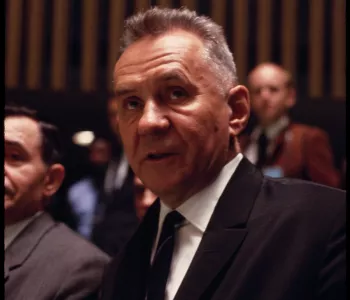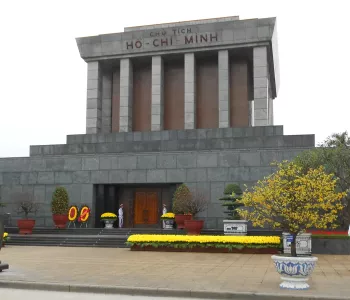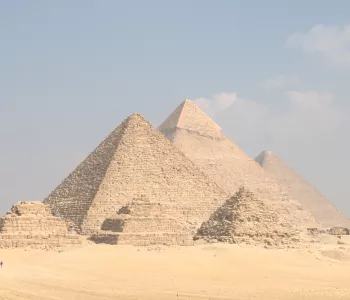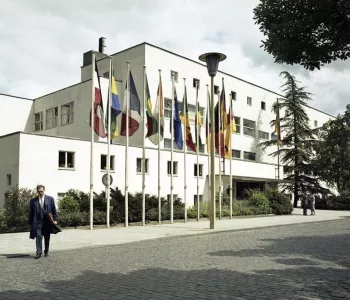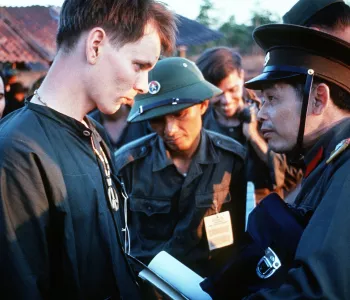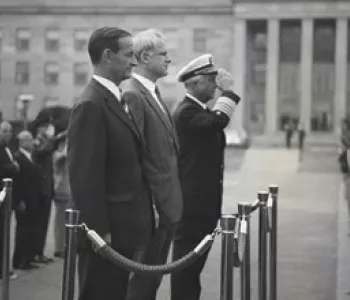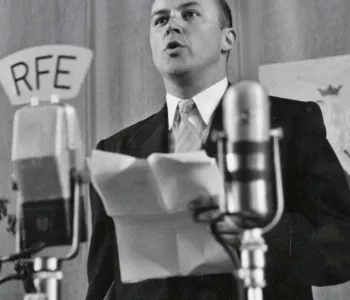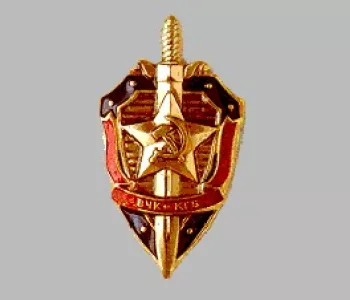d'Vinci

Johnson, Lyndon B. (Lyndon Baines) 1908- 1973
Lyndon Baines Johnson became the Vice President under John F. Kennedy in 1961, and later became President following Kennedy's assassination. Under Johnson US forces began military action against the North Vietnamese and Viet Cong.

Lyndon Johnson was born in Stonewall, Texas on August 27, 1908 in a small farmhouse in a poor area on the Pedernales River. In 1927 Johnson enrolled in Southwest Texas State Teachers College. Soon after he graduated from college, Johnson taught public speaking and debate in a Houston high school. However, he soon quit his job teaching and went into the field of politics.
In 1931 Lyndon campaigned for Richard M. Kleberg and was later rewarded for his work in the campaign with an appointment to be the newly elected congressman's secretary.
As secretary, Lyndon became acquainted with people of influence, found out how they had reached their positions, and gained their respect for his abilities. Lyndon's friends soon included some of the men who worked around President Franklin D. Roosevelt, as well as fellow Texans such as Vice President John Nance Garner.
During his tenure as secretary, Johnson met Claudia Alta Taylor, a young woman who was also from Texas. After only a short period of dating, the two were married on November 17, 1934.
In 1937, Johnson ran for Congress in a special election for the 10th Congressional District of Texas to represent Austin and the surrounding Hill Country. He ran on a New Deal platform and was effectively aided by his wife, Lady Bird Johnson.
President Franklin Roosevelt showed a personal interest in the young Texan from the time he entered Congress. Johnson was immediately appointed to the Naval Affairs Committee, a job that carried high importance for a freshman congressman.
In 1948, Lyndon again ran for the Senate and this time won. Johnson's success in the Senate led to his name being widely mentioned as a possible Democratic presidential candidate. He was Texas' "favorite son" candidate at the party's national convention in 1956. In 1960, Lyndon received 409 votes on the first and only ballot at the Democratic convention. However, the nomination eventually went to Senator John F. Kennedy of Massachusetts. Later in 1960, Kennedy nominated Johnson for vice president slot on the ticket. In November 1960 the Kennedy/Johnson duo beat out Richard M. Nixon and Henry Cabot Lodge, Jr., by a narrow margin.
Johnson was sworn-in as President on Air Force One in Dallas at Love Field Airport after the assassination of President Kennedy on November 22, 1963.
The Great Society program became Johnson's agenda for Congress in January 1965: aid to education, attack on disease, Medicare, urban renewal, beautification, conservation, development of depressed regions, a wide-scale fight against poverty, control and prevention of crime and delinquency, removal of obstacles to the right to vote. Congress, at times augmenting or amending, rapidly enacted Johnson's recommendations. Millions of elderly people found succor through the 1965 Medicare amendment to the Social Security Act.
President Johnson had a distaste for the American war effort in Vietnam, which he had inherited from John Kennedy. Though he would often privately curse the war, Johnson believed that America could not afford to look weak in the eyes of the world, and so he escalated the war effort continuously from 1965–1968, which resulted in thousands of American deaths and perhaps 60 times that number of deaths of Vietnamese (estimates range from 500,000 to 4,000,000). At the same time, Johnson was afraid that too much focus on Vietnam would distract attention from his Great Society programs, so the levels of military escalation, while significant, were never significant enough to make any real headway in the war. This approach was very unpopular with both The Pentagon and America's South Vietnamese allies. Against his wishes, Johnson's presidency was soon dominated by the Vietnam War. As more and more American soldiers and civilians were killed in Vietnam, Johnson's popularity declined, particularly in the face of student protests
In March 1968, in an address to the nation, Johnson announced that he would not seek re-nomination for the presidency, citing the growing division within the country over the war. The Democratic nomination eventually went to Johnson's Vice President Hubert Humphrey, who was later defeated in the 1968 election by Richard M. Nixon. Johnson died on January 22, 1973 from a heart attack at his ranch.

